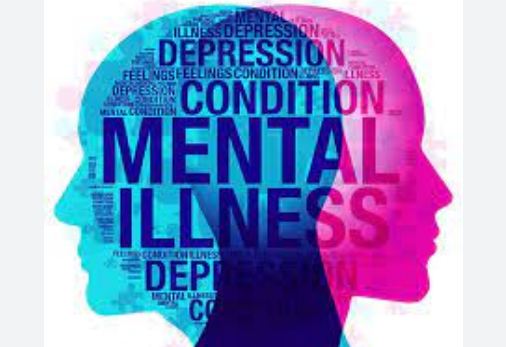Hani Zarbaft Ali
Mental Health is recognized as a crucial element in achieving a healthy lifestyle. In the present day, emphasis has been placed on the role of mental health in achieving global development and is therefore, one of the main aims of the sustainable development goals SDGS laid down by the WHO.
Data from distinct nations around the world point out that mental health problems are a cause of a variety of personnel dropping out of work. In the Netherlands, round 58% of the workrelated disabilities are associated to intellectual health. In the UK, it is estimated that around 30–40% of absenteeism is attributable to some structure of mental illness. People with extreme mental disturbances die upfront due to preventable bodily conditions. According to the WHO statistics, globally, there is an increase in mental health issues.
In the past ten years (through 2017), there has been a 13% increase in mental health illnesses and substance use disorders, primarily due to demographic shifts. In the present day, 1 in 5 people live with a disability due to mental health issues. In post-conflict environments, one in five people suffer from a mental illness. Depression is one of the leading causes of cognitive decline whereas suicide is the 4th leading cause of death among 15-29 years old.
All aspects of life, including school or work performance, relationships with family and friends, and participation in society, can be significantly impacted by mental health issues. Both depression and anxiety, two of the most prevalent mental health illnesses, cost the world economy $1 trillion annually. Despite these numbers, less than 2% of global government health spending is allocated to mental health. It is now significant to empower communities and men and women to acquire the highest levels of mental & physical health, which can solely be performed when their intellectual fitness and well-being is ensured, and their rights respected. The prescient of the WHO Special Initiative for Mental Health is that all human beings acquire the highest standards of mental health & wellbeing. Human rights abuses, stigma, and discrimination against those who have mental health disorders are commonplace.
Stress at work is a significant contributor to occupational illness, low productivity, and human error. This entails increased absences owing to illness, significant personnel turnover, subpar performance within the companies & hospitals, and perhaps an increase in accidents brought on by human error. In addition to physical symptoms like heart disease, back pain, headaches, gastrointestinal problems, or other minor ailments, work-related stress can also have psychological repercussions like anxiety and depression, lack of attention, and poor decisionmaking. Challenging coworkers or colleagues can be a contributor to stress. Dealing with a competitive coworker can be a little more challenging because their performance is frequently compared to one’s own. Once more, this must be settled through a cordial conversation that is followed by consent. One can convey to the coworker how working as a team has much more merits than engaging in rivalry.
However, if matters start to spiral out of control, the relevant supervisor should be informed. Unrealistic expectations can be a major source of stress and suffering, especially during times when the employee may occasionally feel unhealthily and unreasonably pressured.
An employee may genuinely get physically and emotionally exhausted because of an increased workload, extraordinarily long workdays, and strong pressure to perform at the top of one’s game constantly for the same compensation. An employee’s concerns may also include excessive travel and time spent away from family.
In the present day, families are finding it difficult to navigate an ever-more complex environment. People struggle to strike the correct balance between their obligations to their families and their jobs. Workplace concerns can have an impact on home life, so finding a balance and making time for both might help you feel less stressed.
The development and execution of workplace mental health strategies will improve employee wellbeing, boost business productivity, and improve community wellbeing overall. Psychosocial interventions, stress management instruction, and health promotion initiatives have been demonstrated to improve mental health. A healthy population is an economically productive population. Mental health protection thus should be a strategic objective in any workplace environment, which is imperative for human beings and a need of the hour. To improve the mental health of individuals and society at large, WHO collaborates with Member States and partners. This includes actions taken to promote mental health, prevent mental illnesses, and broaden accessibility to high-quality mental health care that upholds people’s human rights. Alas, bear in mind that we are not defined by our mental health conditions, and that it is Okay to not feel okay since so many people, including myself, are right there alongside you. Check in on yourself and others. Consider both your own and others’ needs.
Tell your tale in a way that feels natural to you. By talking about it, we encourage others to share their experiences and normalize discussions about mental health. Respecting and accepting people helps them overcome a major obstacle to successfully manage their breakthroughs.
For someone who is having mental health issues, it can make a huge difference when people perceive you as an individual rather than as having a medical condition. It is possible to ensure that these people have the same rights and opportunities as other members of your family, school, and community by advocating within our spheres of influence. Understanding mental health better enables us to offer beneficial support to people impacted in our families and communities and reduces the heightened burden on those who’re battling mental issues.
The author is a final year medical student & a member of students’ research society. Her aims revolve around interventional cardiology & public health.

















